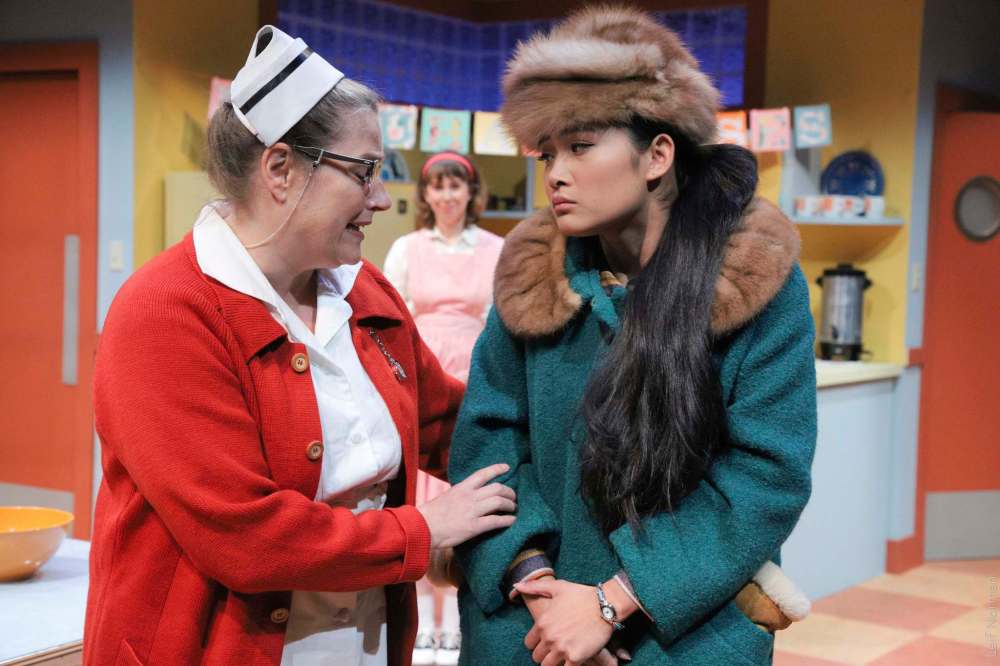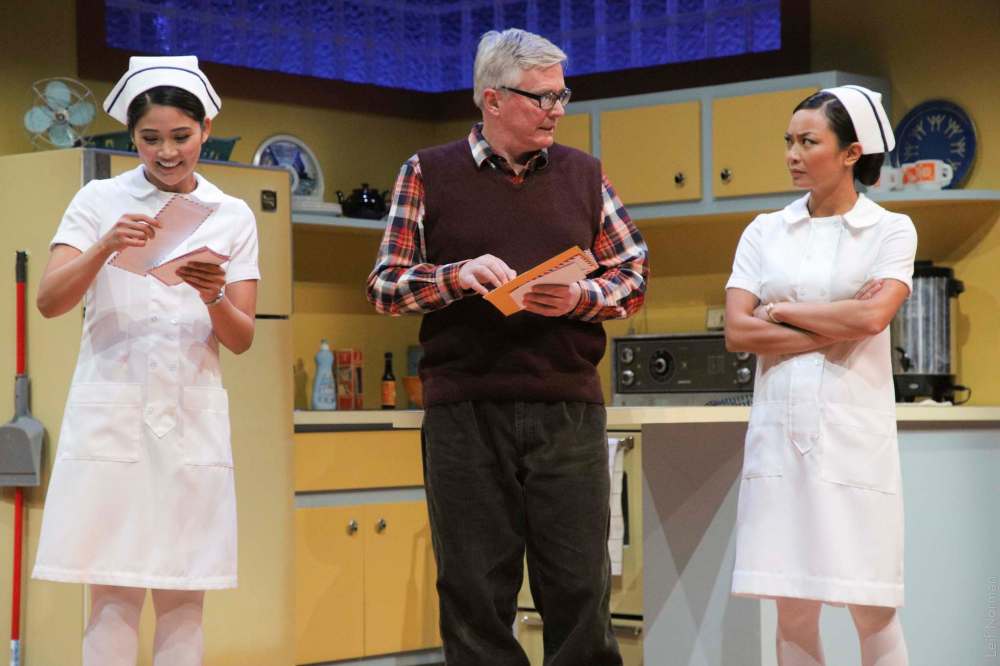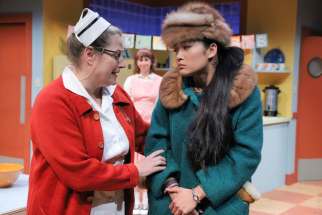PTE’s season opener Prairie Nurse offers prescription of comedy
Read this article for free:
or
Already have an account? Log in here »
To continue reading, please subscribe:
Monthly Digital Subscription
$0 for the first 4 weeks*
- Enjoy unlimited reading on winnipegfreepress.com
- Read the E-Edition, our digital replica newspaper
- Access News Break, our award-winning app
- Play interactive puzzles
*No charge for 4 weeks then price increases to the regular rate of $19.00 plus GST every four weeks. Offer available to new and qualified returning subscribers only. Cancel any time.
Monthly Digital Subscription
$4.75/week*
- Enjoy unlimited reading on winnipegfreepress.com
- Read the E-Edition, our digital replica newspaper
- Access News Break, our award-winning app
- Play interactive puzzles
*Billed as $19 plus GST every four weeks. Cancel any time.
To continue reading, please subscribe:
Add Free Press access to your Brandon Sun subscription for only an additional
$1 for the first 4 weeks*
*Your next subscription payment will increase by $1.00 and you will be charged $16.99 plus GST for four weeks. After four weeks, your payment will increase to $23.99 plus GST every four weeks.
Read unlimited articles for free today:
or
Already have an account? Log in here »
Hey there, time traveller!
This article was published 01/10/2018 (2630 days ago), so information in it may no longer be current.
It is strange that the topic of immigration would prove to be controversial in the context of a certain American president suddenly and flagrantly hostile to this foundational institution.
Nevertheless, it should be considered a matter of good timing that the subject is addressed, albeit in a disarming comic frame, in Prairie Theatre Exchange’s 2018 season opener, Prairie Nurse. It’s the story of two immigrant women from the Philippines who take jobs in remote Saskatchewan in 1967, a year when Canada was desperate to build the ranks of nurses to staff the expanding medical industry.
The script was written by Toronto playwright Marie Beath Badian, who was inspired by the story of her own mother, Ciony Badian, who herself landed in 1967 in the tiny farming community of Arborfield, Sask., population 300.

The stage comedy, which premièred in Ontario’s rural Blyth Theatre Festival in 2013, plays on the cultural divide that ensues when nurses Penny and Puring strive to understand the eccentricities of small-town Saskatchewan dwellers in a plot that touches on farce since, of course, the hapless Canadians can’t tell Penny and Puring apart.
Badian, on the phone from her home in Toronto, says immigration wasn’t an especially hot-button topic when she wrote Prairie Nurse, but it’s PTE opening in 2018 “is certainly serendipitous.
“It is coming at a time in this moment where immigration is certainly at the forefront of our conversation,” she says, adding that the go-ahead for the Winnipeg production has been in the works for the past three years.
“But I’m grateful for this play to be part of this moment, and certainly part of this essential conversation,” she says. “I think that’s just a fringe benefit of the play.”
Recently retired PTE artistic director Robert Metcalfe viewed the work as a way to connect with Winnipeg’s Filipino community, telling a story that is bound to resonate with the original generation of Filipino-Canadians, as well as their offspring.
“I think this is certainly a step in the right direction, but there’s a misconception that if you program it, they will come,” Badian says. She was perfectly pleased when the play opened in 2013 at the Blyth Festival and found an appreciative audience with rural Canadians.
“When I wrote this play, it was really for their audience,” she says, adding that she was excited by the reception at Toronto’s Factory Theatre earlier this year.

“When the play came to Toronto, it was a revelation in that there was not only a diversity of audience culturally coming, (there was) a diversity in age, and a diversity in make-up.
“So it was a joy sitting in the audience and watching intergenerational families, people who have families like mine,” she says. “I had people come up to me and say: ‘Hi, I’m a nurse, this is my mom, she’s a nurse, she came in 1970.’
“And it was amazing to see that trigger such emotion, seeing the family story being presented in the stage in a way that was without tragedy,” she says. “It was really so special.”
● ● ●
Playwrights will always have to contend with critics, but for Badian, the critic that really counted was her mom. Badian’s work in the theatre has been sufficiently laudable that her mother eventually embraced her daughter’s choice of career.
“(My parents’) hope for me was that I would become a computer programmer,” she says, laughing.
“She’s always been so proud and I think she always knew this kind of story was coming way before I even wrote the play.”

“My mom didn’t have a choice other than to become a nurse,” Badian says. “It was her sole responsibility as the eldest kid in her family to earn a living for her family.
“She had wanted to be a chemist but that was not a choice available to her,” Badian says. “She’s been nothing but proud.”
randall.king@freepress.mb.caTwitter: @FreepKing
THEATRE PREVIEW
Prairie Nurse
By Marie Beath Badian
● Prairie Theatre Exchange
● To Oct. 21
● Tickets $25-$53 at pte.mb.ca

In a way, Randall King was born into the entertainment beat.
Our newsroom depends on a growing audience of readers to power our journalism. If you are not a paid reader, please consider becoming a subscriber.
Our newsroom depends on its audience of readers to power our journalism. Thank you for your support.









